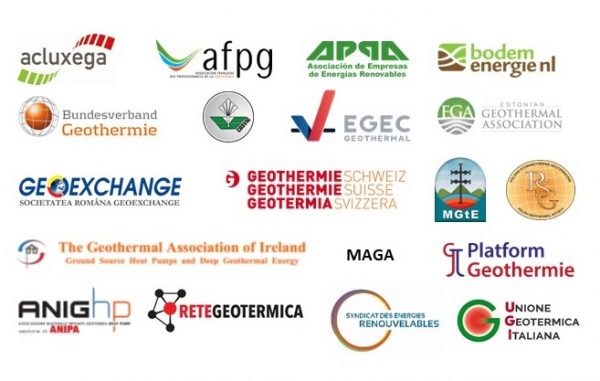Geothermal energy is the energy stored in the form of heat below the surface of solid earth. The deeper one penetrates the interior of the Earth, the warmer it becomes. It is inexhaustible by human standards and so far, it has been used only to a limited extent for heating, cooling and the generation of electricity.
Geothermal energy is a largely CO2 free renewable energy source available at virtually every location. The technology is proven to reliably meet heating, cooling and electricity supply needs. Geothermal also promotes local economic development and job creation. It also is a significant contributor to energy security. Further deployment of this renewable resource requires a strong commitment by public authorities and the private sector. A major barrier to increased deployment of geothermal energy remains awareness of the technology. The support of public authorities plays a key role in promoting geothermal energy.
To deploy geothermal energy, it is crucial that a balanced framework is put in place to provide security of investment for project developers and stability through support schemes, as well as adequate licensing and regulatory conditions. The framework must consider the specificities of geothermal energy technologies as well as a long-term perspective for development.
Investment in research and innovation is directly linked with the deployment of geothermal energy: research shows the correlation between the number of kilometres of exploration drilling and the number of geothermal heating systems.
The signatories to this statement therefore urge the European Commission, the European Parliament, the EU Member States and the associated Countries to intensify the support to research, development and innovation in geothermal energy, and to launch a European Geothermal Exploration Campaign that addresses the key barrier to the development of the technology.
The lack of knowledge of the deeper subsoil is a barrier in the development of geothermal projects. New geological data are the key to create a momentum in the development of geothermal energy.
Other barriers to increased deployment of geothermal include an unbalanced fiscal framework. Disproportionate taxes and levies can hamper the development of an environmentally friendly technology such as geothermal energy. The European Institutions and the EU Member States should lift the undue administrative and fiscal burden of commercial, municipal and private operators of geothermal plants, as this highly efficient technology can provide a significant contribution to European Energy and Climate objectives to 2030 and 2050, creating jobs and bringing local development along the way.
Geothermal plants are characterised by low operational costs. High upfront investment costs are a specific challenge of geothermal project developers, specifically in new areas. The upfront investment is required at the exploration and feasibility stage before the final output of the project can be known with certainty. These funding hurdles should be better compensated by means of guarantees or grants at the start-up phase, instruments which have proven their effectiveness across Europe in lowering the cost of capital for geothermal projects.
Geothermal energy is good for climate, for the people and the environment! It is time to act.
Support a stronger use of geothermal energy in all its forms now.
SIGNATORIES

| acluxega | AFPG | APPA |
| Bundesverband Geothermie | Bodemenergie NL | CoSviG |
| Platform Geothermie | EGEC | Estonian Geothermal Association |
| Geothermie Schweiz | Geothermal Association Ireland | Hungarian geothermal association
|
| Macedonian Geothermal Association | Polish Geothermal Society | Rete Geotermica |
| Romanian Geoexchange Society | SER | UGI |
| ANIGHP |

BE SOCIAL & SHARE